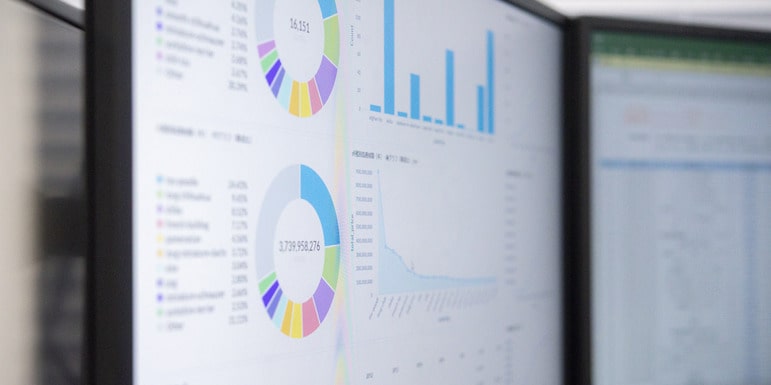Data Analysts/Business Analysts play a crucial dual role in modern organizations, blending technical expertise with strategic insights to help businesses make data-driven decisions. These professionals are responsible for analyzing complex datasets, uncovering trends, and translating those insights into actionable business solutions.
Hiring the right person for this hybrid role requires a careful balance of technical, analytical, and communication-based interview questions. In this guide, we’ll explore top questions to ask candidates for this role, along with what to look for in their responses.
The Role of a Data Analyst/Business Analyst
The combined role of Data Analyst/Business Analyst brings together two critical functions:
- Data Analysis: Extracting, cleaning, and interpreting data to identify trends and insights.
- Business Analysis: Collaborating with stakeholders to align data findings with business goals and drive strategic initiatives.
Key skills required include:
- Proficiency in tools like SQL, Python, or R for data analysis.
- Knowledge of data visualization platforms like Tableau or Power BI.
- Strong understanding of business frameworks and methodologies (e.g., Agile).
- Exceptional communication skills to bridge the gap between technical teams and business stakeholders.
Top Interview Questions for Data Analysts/Business Analysts
- How do you clean and prepare raw data for analysis?
Why ask this? Data preparation is foundational to the role. A good candidate will discuss techniques like handling missing data, standardizing formats, or removing outliers. - Describe a time when you turned a data insight into a successful business decision. How did you communicate your findings?
Why ask this? This assesses the candidate’s ability to connect technical insights with business outcomes and communicate them effectively. - What tools and techniques do you use for data visualization? Can you provide examples of past visualizations you’ve created?
Why ask this? Effective data storytelling requires expertise in visualization. Look for experience with tools like Tableau, Power BI, or Excel. - How do you ensure the accuracy and reliability of your analysis?
Why ask this? Precision is critical. A strong answer will highlight practices like double-checking calculations, using automated checks, and peer reviews. - How do you prioritize tasks when working on multiple projects simultaneously?
Why ask this? Time management and organizational skills are crucial in this dynamic role. - What metrics would you use to measure the success of a business initiative?
Why? Why ask this? This gauges the candidate’s ability to align analysis with measurable business outcomes. - Can you explain a challenging project where you gathered requirements from multiple stakeholders? How did you ensure alignment?
Why ask this? Requirement gathering and stakeholder management are central to this role. - What’s your experience with SQL or other querying tools? Can you share an example of how you used them to solve a problem?
Why ask this? SQL proficiency is often a key requirement. Answers should demonstrate their ability to handle large datasets and extract meaningful insights. - What’s your approach to analyzing the potential impact of a proposed business change?
Why ask this? This reveals how they evaluate risks, benefits, and feasibility when recommending actions. - How do you ensure that your analysis meets the needs of both technical and non-technical audiences?
Why ask this? Communication is key. The candidate should demonstrate an ability to simplify complex data insights for diverse stakeholders.
What to Look for in Responses
The best candidates for a Data Analyst/Business Analyst role exhibit a unique combination of technical and soft skills. Here’s what to focus on:
- Technical Expertise: Look for familiarity with relevant tools like SQL, Python, R, or Tableau, as well as statistical and data modeling knowledge.
- Strategic Thinking: Candidates should connect analysis with business objectives and show a proactive approach to solving problems.
- Communication Skills: A great analyst can explain technical concepts to non-technical audiences clearly and concisely.
- Attention to Detail: Strong responses will highlight how they ensure accuracy and reliability in their work.
- Adaptability: Technology and business needs evolve quickly, so look for a mindset geared toward continuous learning.
Practical Assessments for Software Product Managers
Incorporating hands-on tests into your interview process can provide deeper insights into a candidate’s skills. Consider:
- Data Cleaning and Visualization Task: Provide a messy dataset and ask the candidate to clean, analyze, and create a visualization.
- Stakeholder Communication Scenario: Present a hypothetical business problem and have the candidate explain their approach to gathering requirements and delivering recommendations.
- SQL Query Challenge: Ask them to write a query that extracts specific information from a dataset.
These exercises will help you assess their technical abilities and how they approach real-world challenges.
Best Practices for Interviewing Product Managers
- Tailor Questions to Your Needs: Focus on the skills and experiences most relevant to your organization’s projects.
- Balance Technical and Behavioral Questions: This ensures a well-rounded assessment of both skills and cultural fit.
- Collaborate with Cross-Functional Teams: Involve team members from technical, business, and leadership roles for a holistic evaluation.
- Use Standardized Assessments: This ensures fairness and consistency in evaluating candidates.
Hiring a Data Analyst/Business Analyst requires a structured interview process that evaluates technical skills, analytical thinking, and communication abilities. By asking thoughtful questions and incorporating practical assessments, you can identify candidates who will bring significant value to your organization.
For more hiring insights and strategies, visit SGA, Inc. Our expertise can help you build a team equipped to tackle today’s data-driven challenges.







